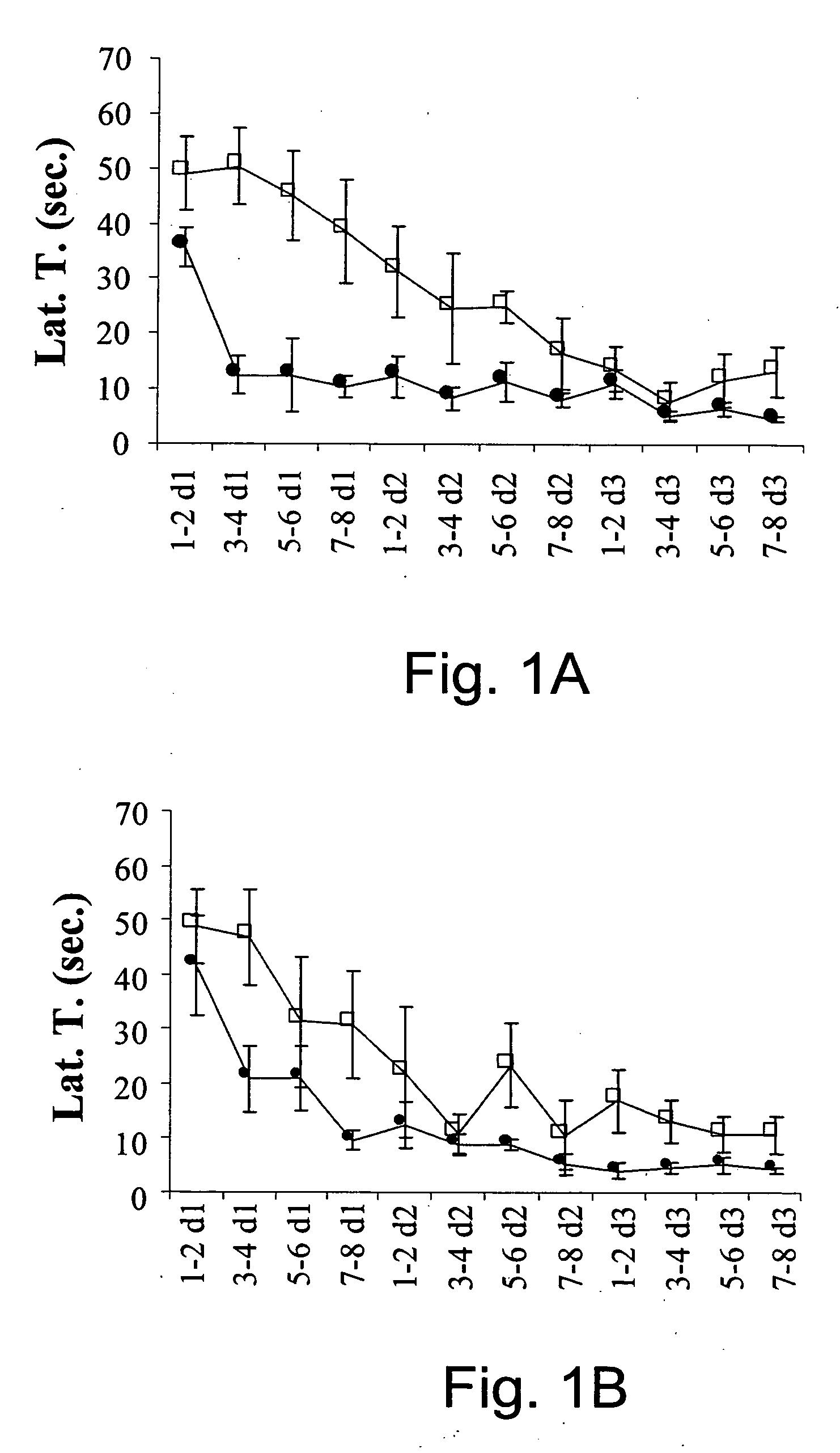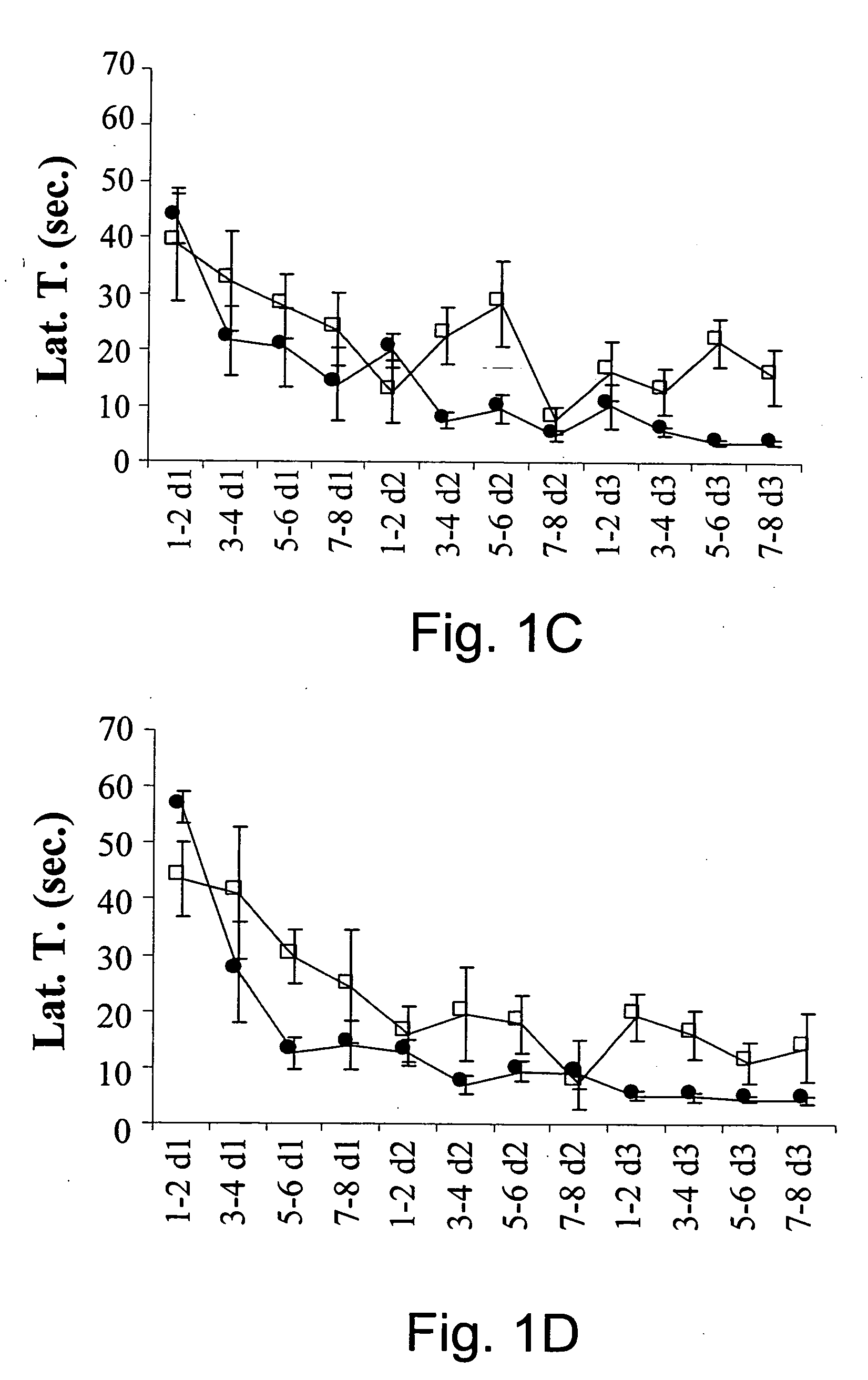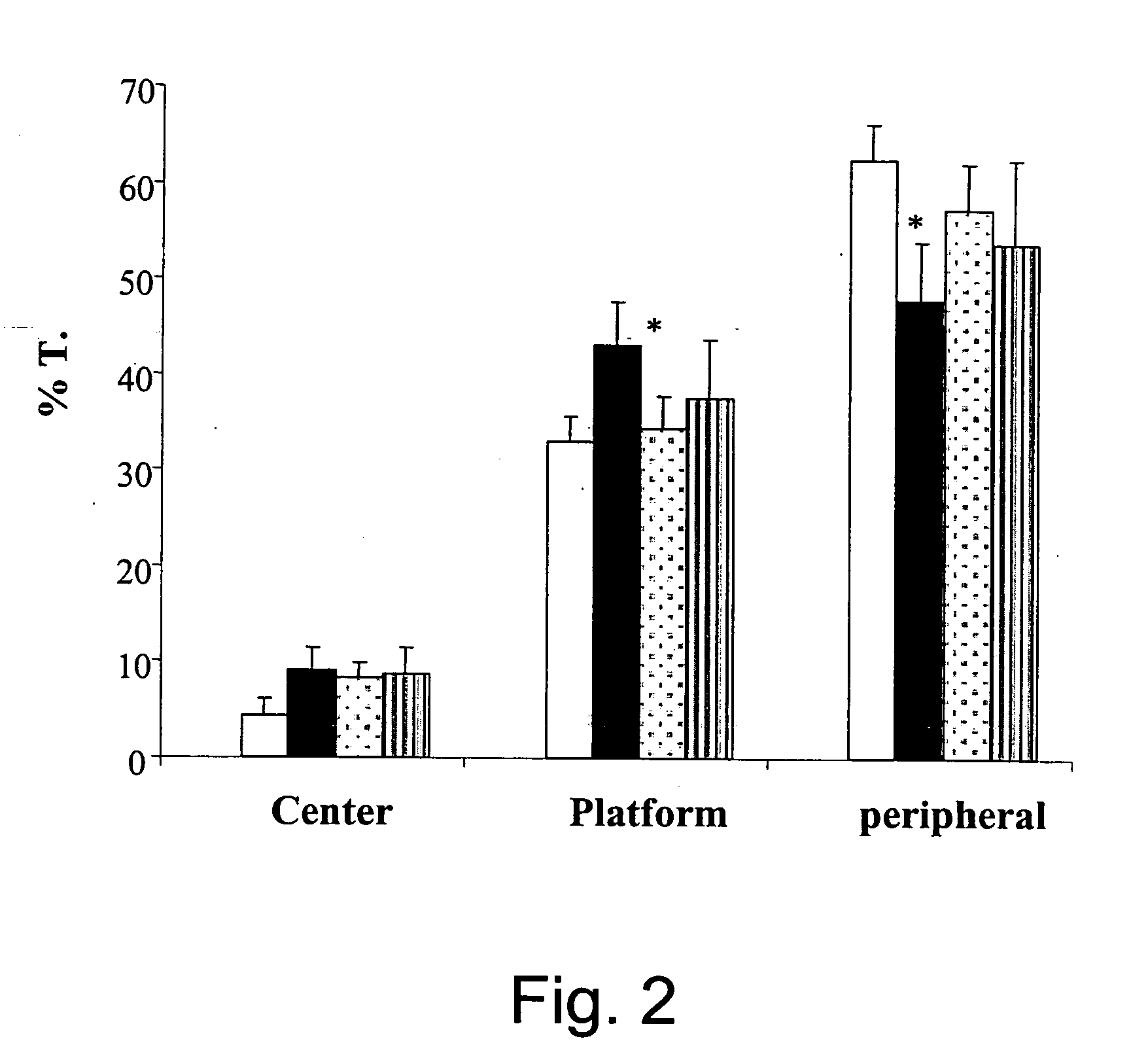Lipids containing omega-3 and omega-6 fatty acids
- Summary
- Abstract
- Description
- Claims
- Application Information
AI Technical Summary
Benefits of technology
Problems solved by technology
Method used
Image
Examples
example 1
Methods:
Animals and Diet
[0164] Male Wistar rats originated from the same colonies were obtained from Harlen. Fifty rats were randomly divided into five dietary supplemented groups, in addition to their normal diet: (i) a group fed 0.1 g medium-chain triglycerides (MCT) / 1 ml supplement matrix (MCT group); (ii) a group fed 0.1 g DHA / EPA (20 / 30% of total fatty acids composition, diluted with MCT to generate 30% (w / w) LC-PUFA compound) triglycerides / 1 ml supplement matrix (LC-PUFA group); (iii) a group fed 0.1 g soybean lecithin-derived PS (20% SB-PS w / w) / 1 ml supplement matrix (SB-PS group); and (iv) a group fed 0.1 g PS-{overscore (ω)}3 (20% PS w / w, and total LC-PUFA composition of 30%) / 1 ml supplement matrix (PS group). The supplement matrices were stored at −20° C., and fresh portions were fed to the rats every day. All supplements were handled so as to minimize oxidation of the fatty acids. Rats consumed the diet and water ad libitum. All rats were housed in a standard environm...
example 2
PS-omega-3 in the Treatment of ADHD Children
[0181] Attention-deficit / hyperactivity disorder (ADHD) encompasses a broad constellation of behavioural and learning problems and its definition and diagnosis remain controversial [Kamper (2001) J. Pediatr. 139:173-4; Richardson et al. (2000) Prostaglandins Leukot. Essent. Fatty Acids, 63(1-2):79-87]. The etiology of ADHD is acknowledged to be both complex and multi-factorial. Traditionally, ADHD is the diagnosis used to describe children who are inattentive, impulsive, and / or hyperactive. Roughly 20-25% of children with ADHD show one or more specific learning disabilities in math, reading, or spelling [Barkley, R. A. (1990) Attention-deficit hyperactivity disorder: a handbook for diagnosis and treatment. New York: Guilford Press]. Children with ADHD often have trouble performing academically and paying attention, and may be disorganized, have poor self-discipline, and have low self-esteem. A conservative estimate is that 3-5% of the scho...
example 3
Effect of PC-DHA Consumption in ApoE° Mice
Methods
Animal Diet
[0189] Apolipoprotein E deficient (ApoE°) mice [Hayek T. et al. (1994) Biochem. Biophys. Res. Commun. 201:1567-1574] at 8 weeks of age, were assigned randomly (5 mice each) to LC-PUFA enriched lecithin (30% omega-3 of total fatty acids composition; PC-DHA group) or placebo. The mice were fed, besides the regular chow diet, once every three days with either 25 μl PC-DHA or PBS, via oral gavage, during 10 weeks.
[0190] Each mouse consumed approximately 5 mL of water / day, and 5 g of chow / day.
Serum Lipids Peroxidation
[0191] Serum was diluted 1:4 in PBS. Serum susceptibility to oxidation was determined by incubating serum sample with 100 mM of the free radical generating compound, 2′-2′-azobis 2′-amidinopropane hydrochloride (AAPH), which is an aqueous soluble azo compound that thermally decomposes to produce peroxyl radicals at a constant rate. The formation of thiobarbituric reactive substances (TBARS) and of lipid per...
PUM
| Property | Measurement | Unit |
|---|---|---|
| Fraction | aaaaa | aaaaa |
| Fraction | aaaaa | aaaaa |
| Fraction | aaaaa | aaaaa |
Abstract
Description
Claims
Application Information
 Login to View More
Login to View More - R&D
- Intellectual Property
- Life Sciences
- Materials
- Tech Scout
- Unparalleled Data Quality
- Higher Quality Content
- 60% Fewer Hallucinations
Browse by: Latest US Patents, China's latest patents, Technical Efficacy Thesaurus, Application Domain, Technology Topic, Popular Technical Reports.
© 2025 PatSnap. All rights reserved.Legal|Privacy policy|Modern Slavery Act Transparency Statement|Sitemap|About US| Contact US: help@patsnap.com



